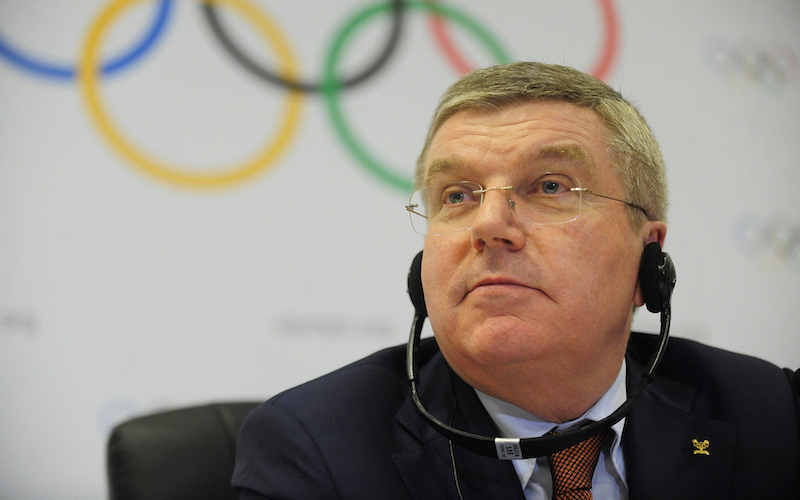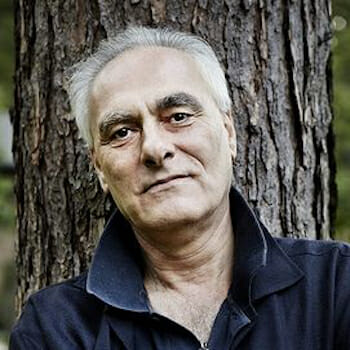
Qatari Soft Power Efforts: Two Steps Forward, One Step Backwards
Efforts to leverage Qatar’s 2022 World Cup hosting rights to create the soft power the Gulf state needs to punch above its weight and ensure a sympathetic hearing in the international community in times of emergency operate on the Leninist principle of two steps forward, one step backwards.
Take events this month as an example.
On the plus side, Qatar’s ambition to host not only the World Cup but also the Olympic Games was boosted with a declaration by Thomas Bach, the president of the International Olympic Committee (IOC), that he was open to a renewed Qatari bid. Qatar’s last bid failed in part because of criticism of its controversial labor sponsorship or kafala system that restricts workers’ rights and puts workers at the mercy of their employers.
Mr. Bach’s statement may well reflect the emergence of a world in which human and other rights count for less with the rise of President-elect Donald J. Trump in the United States and of illiberal, if not authoritarian leaders, in countries ranging from Russia, China and Turkey to Eastern Europe.
Mr. Bach could nonetheless come to regret his remark if predictions by Trump insiders prove correct that the new president, reluctant to confront Saudi Arabia head on, is likely to pick on Qatar as a state that plays both ends with its close alliance with the West and hosting of a major US military base while at the same time allegedly supporting militant Islamist and jihadist forces.
Also on the plus side, in a significant gesture to human rights groups and trade unions in a part of the world that refuses to engage with its critics, Qatar’s 2022 World Cup organizing committee and a major international trade union, Building and Wood Workers’ International (BWI), agreed to launch unprecedented joint inspections of the working and living conditions of migrant workers involved in World Cup-related projects.
The agreement is intended to demonstrate Qatari sincerity in reforming the kafala system at a time that it is under fire for moving too slowly. Human rights and trade union activists have charged that Qatar is going through motions rather than embarking on truly substantive reform.
Yet, activists are unlikely to be satisfied even if the inspections prove that living and working conditions of World Cup-related migrant workers have substantially changed. The activists are demanding that far-reaching change be incorporated in national legislation applicable to all workers in the Gulf state and effectively enforced. Changes in national law expected by the end of this year are likely to fall short of activists’ expectations.
A 52-page Amnesty International report published earlier this month documented what it called “appalling” abuses of the rights of workers employed in the renovation of the Khalifa International Stadium. The Qatari World Cup organizing committee said most of the issues in the report that date back to last year have since been addressed.
Finally, Qatar’s willingness to entertain whatever degree of change and engage with its critics is prompting limited change and debate of the labor issue elsewhere in the Gulf. Prominent Saudi journalist Khaled Almaeena, a regime insider, in an article earlier this month denounced the kafala system as “slavery and ownership.’’
Mr. Almaeena was speaking from experience. “I was for 25 years the editor of the Arab News and for two years the Saudi Gazette, both English language Saudi newspapers. They were the eyes and ears of both Saudis and expatriates, probably more so of the latter. To them, we were a helpline. They wrote to us for advice, assistance, inquiries and support. Most of the letters dealt with working conditions, the breaking of contracts, unfair dismissals and unjust accusations….There was no recourse to legal aid…” he wrote.
On the minus side, the backlash of the rise of illiberal leaders, the decline of concepts of tolerance and human rights, and a wave of conservatism, if not ultra-conservatism, are making themselves felt.
Qatar University this month cancelled a lecture on women in Islam by prominent Saudi women’s activist Hatoon Al Fassi, a member of the university’s faculty as well as that of Saudi Arabia’s King Saud University, after faculty and students demanded on Twitter that she be sacked for challenging Qatari and Islamic values.
Similarly, the Qatari World Cup committee, in a further indication that Qatar may be backtracking on promises, said that current restrictions on alcohol consumption would be upheld during the World Cup. Qatar had earlier said that venues for alcohol consumption would be expanded from hotel bars to specific locations around the country during the tournament.
Not that alcohol is the litmus test of a successful Qatari World given that the tournament may attract a different demography with far more fans from the Middle East, North Africa and the Muslim world who care less about alcohol than their Western counterparts.
Reinforcing perceptions of wrongdoing in Qatar’s World Cup bid, world soccer body FIFA, banned Saoud al-Mohannadi, the vice president of Qatar’s 2022 committee, for one year for refusing to help in a corruption investigation. The ban dashed Mr. Al-Mohannadi’s ambition to become vice-president of the Asian Football Confederation (AFC) and ultimately of FIFA’s governing council
Finally, in a bow to Saudi intolerance of any criticism, Qatar this month fired Jaber Salim Al-Harmi, the editor of Al Sharq newspaper, for tweeting that “other (Gulf) countries slash their citizens’ salaries, while Qatar increases wages. We thank Allah Almighty first and foremost then we thank our leadership which uses national resources for its people’s welfare.”
Mr. Al-Harmi’s comment hit at austerity measures across the Gulf, particularly in Saudi Arabia, that effectively rewrite social contracts under which citizens enjoyed state-provided cradle-to-grave welfare in exchange for surrendering political rights.
Saudi Arabia has been particularly hard hit with stark increases of utility prices and mass layoffs. Qatar this month promised by contrast that it would raise by up to 100 percent the salaries of government employees, the bulk of the Gulf state’s indigenous labor force.
The bottom line is that Qatar’s massive investment in sports as a soft power tool has yet to withstand a cost-benefit litmus test. Without doubt, Qatar has enacted changes that put it in a class of its own among the Gulf States. However, it has yet to convince many that those changes are only the beginning of a process that will ultimately lead to true reform.

